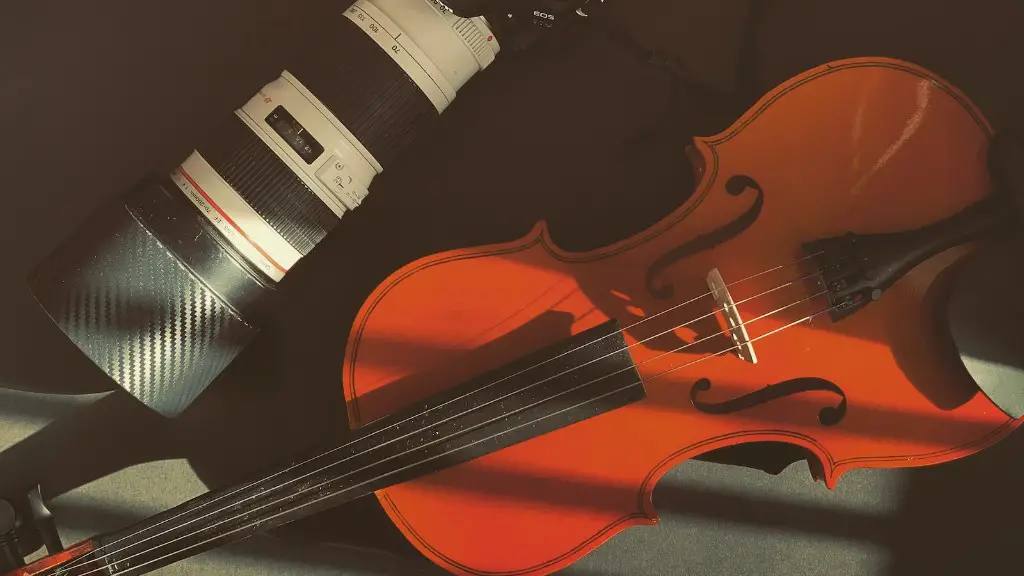Are you looking to buy an electric guitar?
Choosing the right electric guitar is an important decision, as it should suit your playing style and needs. When it comes to selecting an electric guitar, there are several factors to consider.
The most important factor is the type of music you want to play. If you’re a beginner, a solid body electric guitar would be a good choice. You should also look at the size of the guitar and its body shape for comfort and playability. The pickups and bridge are also essential elements of any electric guitar.
You should also consider the budget when buying an electric guitar. From entry-level guitars to high-end professional models, there’s something for everyone in the market. So, take your time, listen to different guitars and find one that sounds great and feels comfortable for you.
Types of Electric Guitars
Electric guitars come in a variety of styles and sizes, allowing players to find the instrument that best suits their needs. The most common types of electric guitars are solid body, semi-hollow body, and hollow body guitars. Solid body guitars are the most popular choice for beginners as they are easy to play and maintain. Semi-hollow body guitars offer a unique sound thanks to their combination of wood and metal components. Hollow body guitars have a more mellow tone and are great for jazz or blues. Additionally, electric guitarists may choose from single coil or humbucker pickups depending on their desired tone.
No matter which type of electric guitar you choose, it is important to know your playing style and what sound you want from your instrument. Consider the size of the guitar, its materials, pickups, features, and even the price range before making a purchase. A good quality electric guitar can last you many years if taken care of properly – so make sure to take your time when selecting one!
Body Shape and Size
When it comes to choosing the right electric guitar, body shape and size are two important factors to consider. The shape of the guitar will impact its sound, as well as how comfortable it is to play. Common body shapes for electric guitars include double cutaway, single cutaway, and solid body. Each shape has its own unique sound profile, so consider what type of sound you are looking for when picking a shape. Additionally, make sure the size of the guitar fits your body type; if a guitar is too large or too small, it can be difficult to play. If you’re still unsure which model is best for you, try different guitars in your local music store to get a better sense of which one is most comfortable for you.
Pickups and Tone
Choosing the right electric guitar can be a difficult task. The pickups and tone of the guitar can make a dramatic difference in the sound, so it’s important to pick one that fits your style and preferences. Humbuckers are typically louder and have more output than single-coils, making them great for rock, metal, and blues. Single-coil pickups are usually brighter sounding and have less output, making them perfect for jazz and country music. When it comes to tone, you will want to experiment with different amps and effects pedals to find the sound that’s perfect for you. Keep in mind that different woods will also affect the tone of your instrument.
When shopping for an electric guitar, always keep in mind what type of music you want to play as well as your budget. Quality instruments can be found at all different price points, so make sure you do your research before making a purchase! A good rule of thumb is to always test out an instrument before buying it so you know exactly what you’re getting.
Neck Profile, Action, and Playability
The neck profile of an electric guitar is an important factor when choosing the right instrument. It refers to the shape of the neck and how it fits in your hand. Different shapes can affect the way you play and how comfortable you feel when playing. A slim neck profile is best for players with small hands, while a thicker neck profile is better for those with larger hands. Action is another important factor to consider. This refers to the distance between the strings and the frets on a guitar. A higher action makes it harder to press down on the strings but provides better sustain and clarity in sound. A lower action makes it easier to press down on strings but can lead to buzzing if not adjusted properly. Lastly, playability is a key factor when selecting an electric guitar. This involves how well a guitar plays in terms of its intonation, tone, responsiveness, and overall feel when playing chords and notes. All of these aspects should be taken into account before making a purchase decision.
As long as you consider all these factors carefully, you should be able to find a guitar that suits your needs perfectly!
Durability and Quality of Components
When choosing an electric guitar, quality and durability of components should be a priority. The construction of a guitar affects its playability, sound, and longevity. Quality materials such as solid wood for the body, nickel-plated hardware for the bridge and tuners, and good electrical wiring are all important factors to consider when purchasing an electric guitar. It is also important to check the electronics to make sure they are well-built and provide good tone quality. An adjustable truss rod should also be in place to ensure stability in the neck.
The quality of craftsmanship is another factor to look into when selecting an electric guitar. Pay attention to details such as fretwork, finish, and polish; these all contribute to a great playing experience. Make sure all the parts are securely attached so you don’t have loose wires or other problems that can arise from poor workmanship.
Ultimately, choosing an electric guitar should be based on personal preference. However, it is important to prioritize durability and quality components when making your decision so that you can enjoy your instrument for many years to come.
Choosing the Right Electric Guitar
When it comes to choosing an electric guitar, there are a few important factors to consider. First and foremost, you should select a guitar that suits your playing style and skill level. Beginners should look for guitars with thinner necks that are easier to play. Experienced players may prefer thicker necks with more complex electronics and controls.
Next, consider the body type of the guitar. Solid body guitars provide a more traditional sound while hollow body guitars offer a softer, airier sound. Guitars with semi-hollow bodies provide a balance between the two. You should also pay attention to the pickups on the guitar, as this will affect its sound. Humbucker pickups produce a thick tone while single coil pickups produce a brighter tone.
Finally, make sure you try out several different guitars before making your decision. Even though aesthetics are important, it is more critical that you find a guitar that sounds and plays great for you.
The best way to narrow down your search is to read reviews and talk to other musicians who have experience playing different electric guitars. With some research, you’ll be able to find the perfect electric guitar for you!
The Bottom Line
Choosing the right electric guitar is a personal decision. You need to consider your playing style, budget, and the sound you are looking for. You should also consider the type of wood used for construction, the pickups, and the bridge and nut as well. Don’t forget to try out different guitars before buying one to make sure it is the right fit for you. Ultimately, it comes down to what matters most to you in an electric guitar.
The electric guitar is a versatile instrument capable of producing a variety of sounds. For beginners and professional players alike, choosing an electric guitar that fits your needs and style can be a daunting task. However, with knowledge of the features available as well as a bit of trial and error, you can find the right fit for you.





